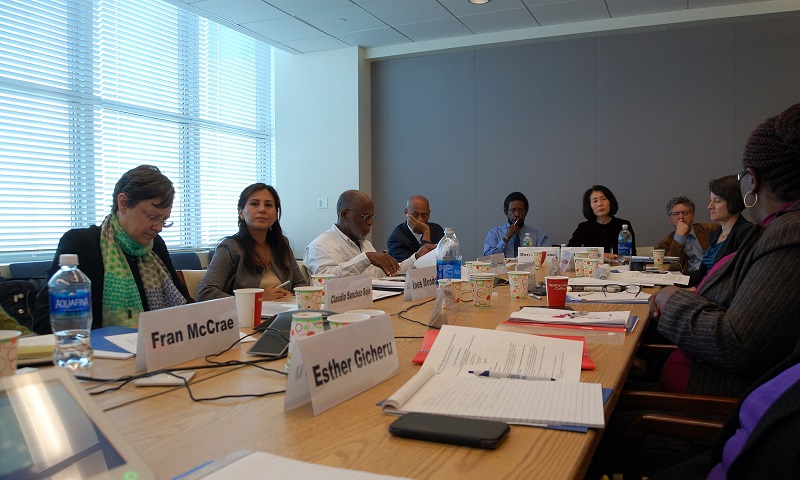
When it comes to meeting and beating the challenge of achieving sustainable development, mutual effort just might be the magic formula.That was the clear message from a meeting of cooperatives experts from around the world who got together over two days at UN Headquarters in New York last week.The meeting’s goal was to discuss and communicate the alignment of the Sustainable Development Goals with cooperatives.
The United Nations defines cooperatives as “an autonomous association of persons united voluntarily to meet their common economic, social, and cultural needs and aspirations through a jointly-owned and democratically-controlled enterprise.” In the UN context, cooperatives are entities with a charter requiring them to adopt a mutual approach to achieve shared outcomes.
The central finding of the meeting was clear: The 2030 Agenda cannot be achieved without the work of the cooperatives sector.
Not only are cooperatives vital to achieve the SDG’s but their work also contributed to the development of the final 17 goals. In his opening presentation Maxwell Haywood, focal point on Cooperatives in the Division for Social Policy and Development, UNDESA, cited a raft of studies and documents that lend weight to the case. They included The UN Secretary General Report 2015 on Cooperatives and the SDG’s and Cooperatives and the Sustainable Development Goals: A contribution to the post-2015 development debate prepared by Frederick O. Wanyama, among others.
The role cooperatives can play in addressing the global youth unemployment crisis was emphasised by Simel Esmel from the International Labour Organisation, Cooperatives Unit. She outlined why cooperatives appeal to youth, including capacity for on-the-job training and internships as well as responsivity to social and environmental needs.
Ines Medonza from the International Cooperative Alliance, Americas Office, discussed the benefits of the inclusive characteristics of cooperatives for vulnerable groups including indigenous persons and older persons. Ms Medonza provided examples used in Canada by health and home care services utilising the cooperative model for older persons. She emphasised the use of the cooperative model in supporting the global ageing population.
The important link between food security, nutrition and agriculture was made by Emma McInerney, Partnership Officer, Cooperatives and Producer Organisations at Food and Agriculture Organisation (FAO) of the United Nations. Ms McInerney reminded the group that the majority of the world’s poor live in rural areas and most depend on farming for employment. She explained that cooperatives provide these workers access to information, infrastructure, markets and resources to carry out their work successfully. The support of the FAO in assisting cooperatives to achieve their outcomes highlighted the strong link between cooperatives and agriculture, she said.
President of the Caribbean Confederation of Credit Unions, Member of World Council of Credit Unions, Aaron Moses, outlined the important financial role of mutual entities such as credit unions. Mr Moses explained that, unlike private banks, credit unions are not-for-profit institutions governed by a voluntary board. Instead of paying dividends to shareholders, they can invest portions of their surplus in projects like social and educational initiatives.
The inclusiveness of the cooperatives model captures the essence of SDG’s. The work and research presented by each expert throughout the group meeting conveyed the need for cooperatives to be at the forefront of the SDG’s programmes, highlighting the capacity of cooperatives to reach those furthest behind first and realise the 2030 Agenda.
To learn more about our work on cooperatives visit social.un.org/cooperatives
Copyright & Source UNDESA DSPD
 Welcome to the United Nations
Welcome to the United Nations